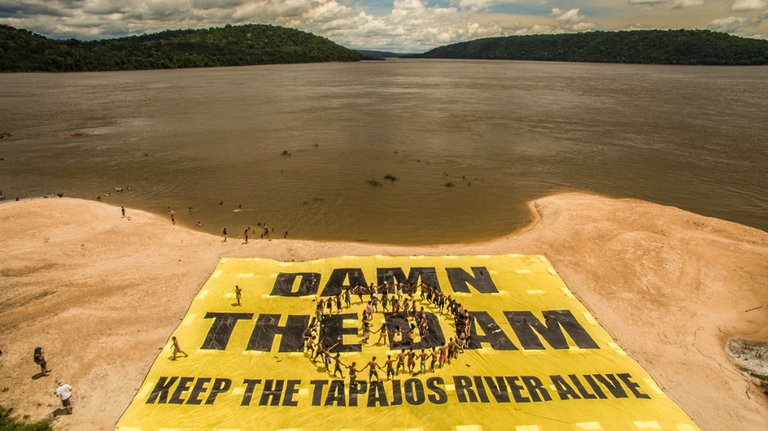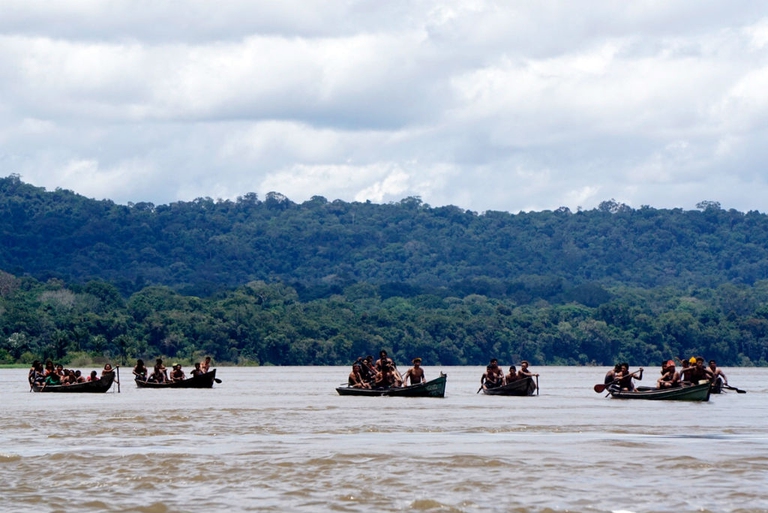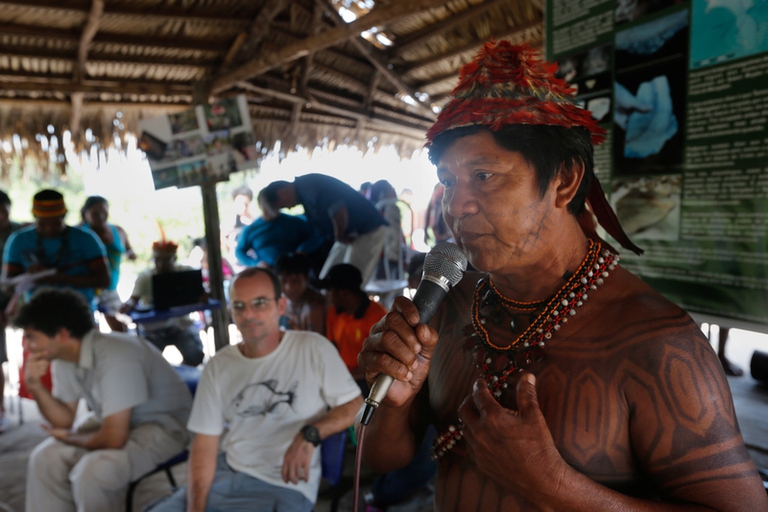
A special report from the Yuqui territory delves deep into the dreams, challenges, joys and sadness of one of Bolivia’s most vulnerable indigenous groups.
The environmental license for one of the most extensive dams in Brazil has been denied. A valuable and sensitive area of the Amazon has been spared.
The construction of the São Luiz do Tapajós hydroelectric dam has been denied. The Brazilian Government will have to propose a completely different project. This, according to the Brazilian Institute of the Environment and Renewable Natural Resources (IBAMA), which decided not to give an environmental license for the construction of the mega-dam in the heart of the Brazilian Amazon.
The project didn’t comply with the Environmental Impact Assessment (EIA) requirements due to its serious impact on the whole area. As a result, IBAMA’s President Suely Araujo announced the cancellation of licensing for the dam.
The aim of the project was to build a dam in the Tapajós river basin, one of the largest tributaries of the Amazon River. The dam would have been built in the Sawré Maybu indigenous lands, where the Munduruku Indians live, flooding 729 square kilometres of lands, probably one of the most sensitive areas of the Amazon. If it had gone ahead the hydroelectric dam would have generated 8,000 megawatt of power, at a cost of 32 billion dollars, becoming one of the country’s most extensive dams.
“We, Munduruku people, are very happy with the news. This is very important for us. Now, we will continue to fight against other dams in our river”, Arnaldo Kabá Munduruku, Munduruku General Chief, told Greenpeace.
The association has carefully recorded the events, saying that: “In the last few months, more than 1.2 million people around the world joined the Munduruku call to stop the São Luiz do Tapajós project and demanded multinational companies like Siemens and GE distance themselves from it”, following the example of ENEL that told Greenpeace it doesn’t want to support this dangerous project.
There are at least another 40 hydroelectric projects planned in the river basin. Which explains the hunger for energy in a country that is growing at a rocketing rate but that doesn’t always care about preserving the most important and valuable thing it has: the forest and its rivers.
“This is a great victory for the Munduruku Indigenous people who live in the Tapajós region and whose traditions and rights were deeply threatened by the dam”, said Danicley Aguiar, Greenpeace Brazil campaigner. “It is a great victory also for everyone who cares about the Amazon forest and supports the Munduruku globally”. Foresta amazzonica e dei suoi abitanti, umani e non, e che hanno voluto sostenere i Munduruku in questa battaglia”.
Siamo anche su WhatsApp. Segui il canale ufficiale LifeGate per restare aggiornata, aggiornato sulle ultime notizie e sulle nostre attività.
![]()
Quest'opera è distribuita con Licenza Creative Commons Attribuzione - Non commerciale - Non opere derivate 4.0 Internazionale.
A special report from the Yuqui territory delves deep into the dreams, challenges, joys and sadness of one of Bolivia’s most vulnerable indigenous groups.
The Yuqui people of the Bolivian Amazon fight not only to survive in the face of settlers, logging and Covid-19, but to preserve their culture and identity.
Jair Bolsonaro is accused of crimes against humanity for persecuting indigenous Brazilians and destroying the Amazon. We speak to William Bourdon and Charly Salkazanov, the lawyers bringing the case before the ICC.
Activists hail the decision not to hold the 2023 World Anthropology Congress at a controversial Indian school for tribal children as originally planned.
Autumn Peltier is a water defender who began her fight for indigenous Canadians’ right to clean drinking water when she was only eight years old.
The pandemic threatens some of the world’s most endangered indigenous peoples, such as the Great Andamanese of the Andaman and Nicobar Islands in India.
The Upopoy National Ainu Museum has finally opened. With it the indigenous people of Hokkaido are gaining recognition but not access to fundamental rights.
A video shows the violent arrest of indigenous Chief Allan Adam, who was beaten by two Royal Canadian Mounted Police (RCMP) officers.









